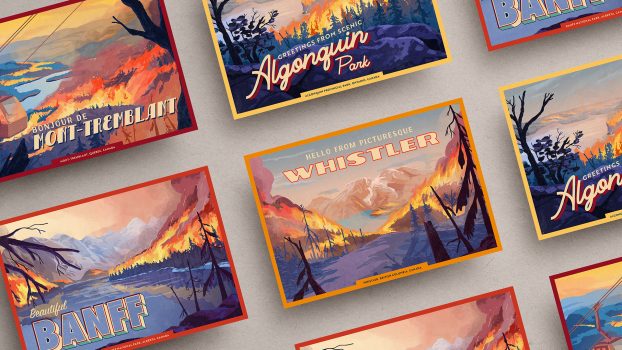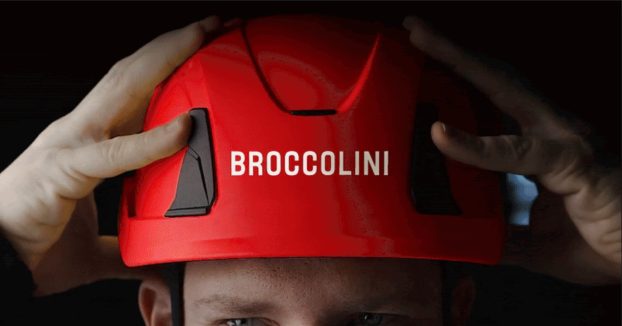Dave Cobb doesn’t have a typical marketing background. He spent a good portion of his career on the financial side, getting into the sports world through a CFO position with the Vancouver Canucks. It was there that he got his first taste of marketing, which he was responsible for after a job shift to COO. But, he says, his financial background has proved perfect for handling his current role of EVP and deputy CEO of the Vancouver Organizing Committee for the 2010 Olympic and Paralympic Winter Games (VANOC), in charge of revenue, marketing and communications.
VANOC was formed after Vancouver won its bid to the International Olympic Committee (IOC) to be the host of the 2010 Games back in July 2003. A year after the bid was won, Cobb came on board, and thinking about the scope of his duties is enough to make one’s head spin. With an overall budget of $170.4 million, he’s not only in charge of marketing to consumers, but raising sponsorship revenue – a goal that was originally set at $454 million, which has been adjusted several times, with about $760 million raised to date.
Cobb says that when you consider the average professional sports team has to raise $15 to 20 million a year, the Olympic goal seems massive. That combined with the fact that they have few traditional media assets to sell – there’s no advertising inside Olympic venues, so no arena signage, rink boards, etc., and television ads are sold through Olympic broadcaster CTV – forced Cobb to take a different approach.
‘You have to convince people that you’re going to provide value for what you’re asking in return,’ he says, ‘[I took] a fresh look at how marketing and sales had typically been done and modified it a little to try and take it beyond just meeting the marketing objectives of companies, and expand it to any business objective they may have.’
This meant researching potential sponsors and determining what objectives the Olympics could help them achieve – everything from rewarding employees to building brand recognition. ‘We would meet with companies four, five, six times before we even got close to talking about money,’ says Cobb.
He gives the example of sponsor Teck Cominco, the Vancouver-based mining company providing the gold, silver and bronze for the Olympic medals, which were unveiled last month. ‘They’re not going to sell more gold or any other metal because of the Olympic Games,’ he says. ‘[It’s about] value alignment – they want their people to associate with the values of excellence and discipline and everything the athletes have to do to get the medal hung around their neck. Every Teck employee will be part of that experience.’
The Olympics have nine worldwide sponsors, such as McDonald’s, Visa, GE and Coca-Cola, which have global rights and which became automatic Vancouver 2010 sponsors when the Games came to Canada. There are also six national sponsors – Bell, Hudson’s Bay Co., RBC, GM, Petro-Canada and Rona – as well as over 40 other supporters and suppliers spanning an array of industries, from Nortel to Nike.
Cobb heads up a marketing and client services team of 20 account managers who work with sponsors and will sometimes take a hands-on approach, assisting the less sophisticated marketing organizations in developing their programs and creative if needed. While the larger sponsors like Coke or Bell will include and update VANOC on their plans, those companies tend to take the lead on their initiatives, Cobb explains. Overall, everything the sponsors create with an Olympic theme must go through the VANOC marketing department as part of an approval process.
One way that sponsors are gaining exposure is through the Olympic Torch Relay. It began on Oct. 22 with the lighting of the flame in Olympia, Greece. After a one-week trip to Athens, it was flown to Victoria, B.C. on Oct. 30. On board for the relay through over 1,000 communities are two presenting sponsors, Coca-Cola and RBC. For the past several months, both sponsors have been engaged in integrated campaigns to promote the relay and encourage people to sign up as torchbearers on their respective websites – iCoke.ca and Carrythetorch.com. The sponsors will also be present at nearly 200 community relay celebrations featuring local personalities and entertainers.
Cobb says that the benefit for these sponsors is to be relevant to consumers ‘and to do it in a way that’s not a hard sell of product, but rather just share experiences with the communities that these companies do business in.’
While sponsors are a huge part of Cobb’s remit, he also oversees marketing to consumers – after all, someone has to buy those tickets and merchandise (besides the marketing and client services team, there is also a sales team and a ticketing team). While VANOC has a major deal to advertise with a consortium that includes Canwest newspapers, the Globe and Mail, La Presse in Quebec and CTV (VANOC created the ‘With Glowing Hearts’ TSA, while the ‘I Believe’ campaign is the network’s), the organization generally spends very little on other advertising, says Cobb. ‘We get huge value out of earned media,’ he explains. ‘We’re fortunate that there’s a lot of interest in our product. Sometimes it’s not all positive, but if we want to get a message out, it’s quite easy.’
VANOC is also very active online. The communications team develops and executes social media plans that include Facebook, Twitter and VANOC’s own YouTube channel. There are also over 200,000 people subscribed to receive updates through Vancouver2010.com, which is full of info on all things Olympic. ‘Our website is a huge driver of our communications,’ says Cobb. ‘It will likely be the busiest website in the world during the period of the Games.’
On the merchandise side, a 20,000 sq. ft. Olympic superstore launched last month in downtown Vancouver that holds everything Games-related, including the HBC-designed Team Canada uniforms. (Merchandise is also sold at HBC locations as well as in over 1,600 other stores across Canada.)
Vancouver-based Hyphen Communications has worked with VANOC since the bid, when they developed a cohesive brand identity and creative materials. Hyphen has continued to work with the committee, along with Montreal-based Bleublancrouge and the now-defunct Toronto-based Downtown Partners, which worked with VANOC until December 2008.
David Martin, president of Hyphen, says the key to running a smooth Olympic ship has been about tying everything to a clear brand essence, one that started with three words that became an internal slogan: celebrate the possible.
‘For someone who supposedly doesn’t have [a branding] background, [Cobb] is an amazingly insightful person and was one of the core people responsible for taking the principles of brand essence and putting it through all elements of the organization,’ says Martin. ‘They embraced it on every level, from how they hired people to how they would evaluate a job performance to venue development. It really became a part of their core DNA.’
Cobb says that his biggest challenge has been hitting revenue targets and keeping a balanced budget. It’s a challenge that has seen highs and lows. After buying up $40 million worth of billboards around B.C. for its sponsors, by July VANOC was left with $12 million in unsold space. However at press time, that number was down to $7 million, with Cobb noting a renewed urgency for companies looking to get involved. While VANOC is considering all applications for the space, its priority remains selling to sponsors and partners.
Ticket sales have been a notable success. Despite the fact that they didn’t go on sale until after the recession hit, requests for the first sales phase last fall were about four and a half times the value of tickets available (phase two sold 150,000 tickets and the remainder will be sold this fall), and Cobb says that there was $100 million in ticket orders for the men’s gold medal hockey game, despite the fact that only a fraction could be filled – a testament to Canadian interest in these home-based Games.
‘If the Winter Games can’t succeed in Canada, then the whole Olympic movement has a problem,’ Cobb says. ‘I think we were able to open companies and individuals’ eyes up that when [the Olympics] come, you need to find a way to benefit from it and take advantage of an opportunity that doesn’t come along very often.’
Bio:
Born: Vancouver, B.C., Feb. 6, 1963
Family: wife and 11-year-old daughter
Hobbies: watching sports on TV (especially hockey and soccer), keeping physically active and spending time with family
Education: bachelor of business administration from Simon Fraser University
Career: His first job out of university was a five-year stint with accounting firm KPMG, after which he joined the Vancouver Canucks, first as CFO and then as COO. He joined VANOC in August 2004
Three Questions:
1. What’s your fave Olympic event?
I look most forward to Canada playing Russia in the gold medal hockey final.
2. What was the best piece of advice you ever received?
Whenever you do a deal, you need to think of the worst that could happen. If you can live with the worst, then you do it. You have to take risks to be successful.
3. What’s your favourite destination outside of Canada?
London, England. My wife is from there and combining that with the soccer, I love going there.






















